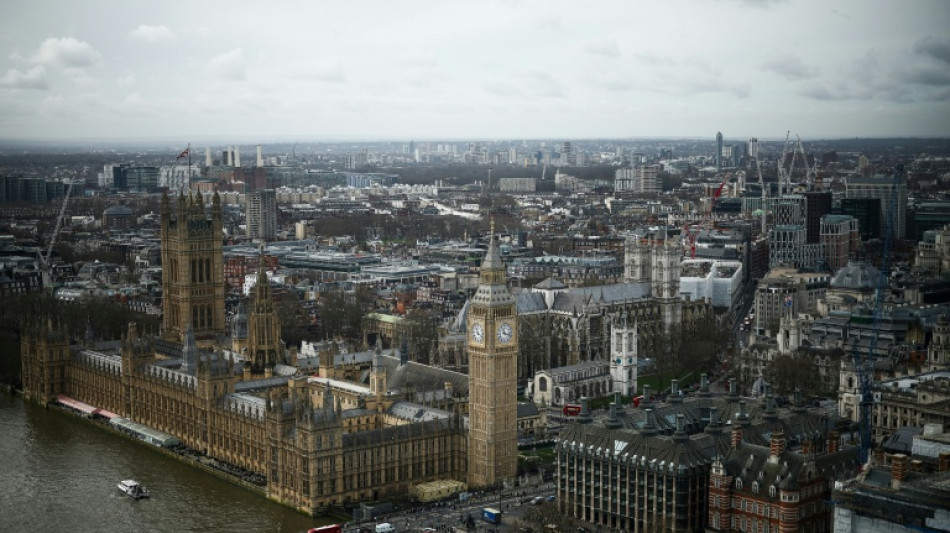
UK MPs vote to decriminalise abortion for women in all cases

UK MPs on Tuesday voted to end contentious prosecutions of women in England and Wales for terminating a pregnancy, paving the way for a huge overhaul of how the country's abortion laws are enforced.
Currently, a woman can face criminal charges for choosing to end a pregnancy after 24 weeks or without the approval of two doctors, under laws which technically still carry a maximum sentence of life imprisonment.
The issue has gained attention in the UK due to recent court cases. In one, a woman was cleared by a jury at trial, while another was released from prison on appeal.
MPs voted by a majority of 242 on Tuesday in favour of an amendment put forward by Labour MP Tonia Antoniazzi, which would ensure that no woman would be criminally pursued for terminating her own pregnancy at any time -- even though the amendment leaves the underlying abortion laws unchanged.
The full crime and policing bill must now be voted on by parliament and then pass the upper House of Lords before becoming law.
"Women are currently being arrested from hospital bed to police cell and facing criminal investigations on suspicion of ending their own pregnancy," Antoniazzi told AFP.
"My amendment would put a stop to this," she said, adding it was "the right amendment at the right time".
Abortion in England and Wales is a criminal offence under the Offences Against the Person Act, passed in 1861 during the Victorian age and which theoretically carries a maximum sentence of life imprisonment.
The Abortion Act 1967 made terminations legal in certain circumstances, including by permitting it up to 23 weeks and six days of gestation if done by an authorised provider.
Abortions are allowed in limited circumstances after this time, such as if the mother's life is in danger or there is a "substantial risk" the child could be born with a serious disability.
An update to the law introduced during the Covid-19 pandemic allows women to take abortion pills at home up to 10 weeks into a pregnancy.
In May, Nicola Packer was acquitted after taking prescribed abortion medicine when she was around 26 weeks pregnant, beyond the 10-week legal limit.
The 45-year-old told jurors during her trial, which came after a four-year police investigation, that she did not realise she had been pregnant for so long.
"It was horrendous giving evidence, absolutely awful," she told The Guardian newspaper last month.
The Society for the Protection of Unborn Children has however called the proposed amendment "the greatest threat to unborn babies in decades".
- 'Optimistic' -
Antoniazzi's amendment will not change any of the laws regarding the provision of abortion services, including the time limits.
And anyone assisting a woman in getting an abortion outside the remits of the law, such as medical practitioners, will still be liable for prosecution.
Some 50 organisations, including abortion providers, medical colleges, and women's rights groups, have backed the amendment.
They say six women have appeared in court in England charged with ending or attempting to end their own pregnancy outside abortion law in the last three years.
Carla Foster was jailed in 2023 for illegally obtaining abortion tablets to end her pregnancy when she was between 32 and 34 weeks pregnant. The Court of Appeal eventually suspended her sentence.
Antoniazzi said police have investigated "more than 100 women for suspected illegal abortion in the last five years including women who’ve suffered natural miscarriages and stillbirths".
"This is just wrong. It's a waste of taxpayers money, it's a waste of the judiciary’s time, and it's not in the public interest," she told the BBC Tuesday.
When asked about the vote, Prime Minister Keir Starmer said Tuesday that women have the right to a "safe and legal abortion".
Northern Ireland decriminalised abortion for women in 2019. Scotland is currently reviewing its abortion laws.
N.Calero--HdM

 London
London

 Manchester
Manchester
 Glasgow
Glasgow
 Dublin
Dublin
 Belfast
Belfast
 Washington
Washington
 Denver
Denver
 Atlanta
Atlanta
 Dallas
Dallas
 Houston Texas
Houston Texas
 New Orleans
New Orleans
 El Paso
El Paso
 Phoenix
Phoenix
 Los Angeles
Los Angeles



